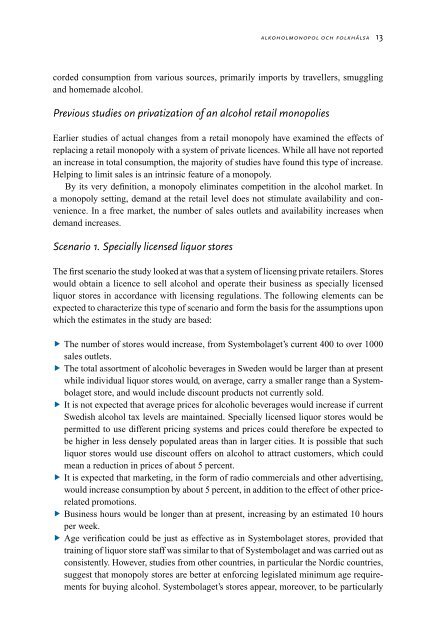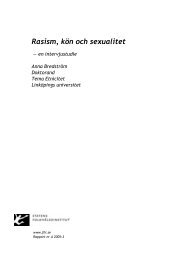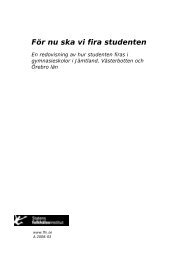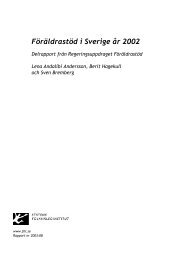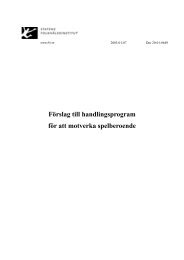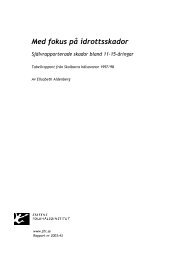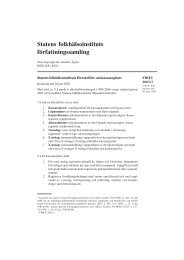Alkoholmonopol och folkhälsa - Statens folkhälsoinstitut
Alkoholmonopol och folkhälsa - Statens folkhälsoinstitut
Alkoholmonopol och folkhälsa - Statens folkhälsoinstitut
Create successful ePaper yourself
Turn your PDF publications into a flip-book with our unique Google optimized e-Paper software.
alkoholmonopol <strong>och</strong> <strong>folkhälsa</strong> 13<br />
corded consumption from various sources, primarily imports by travellers, smuggling<br />
and homemade alcohol.<br />
Previous studies on privatization of an alcohol retail monopolies<br />
Earlier studies of actual changes from a retail monopoly have examined the effects of<br />
replacing a retail monopoly with a system of private licences. While all have not reported<br />
an increase in total consumption, the majority of studies have found this type of increase.<br />
Helping to limit sales is an intrinsic feature of a monopoly.<br />
By its very definition, a monopoly eliminates competition in the alcohol market. In<br />
a monopoly setting, demand at the retail level does not stimulate availability and convenience.<br />
In a free market, the number of sales outlets and availability increases when<br />
demand increases.<br />
Scenario 1. Specially licensed liquor stores<br />
The first scenario the study looked at was that a system of licensing private retailers. Stores<br />
would obtain a licence to sell alcohol and operate their business as specially licensed<br />
liquor stores in accordance with licensing regulations. The following elements can be<br />
expected to characterize this type of scenario and form the basis for the assumptions upon<br />
which the estimates in the study are based:<br />
The number of stores would increase, from Systembolaget’s current 400 to over 1000<br />
sales outlets.<br />
The total assortment of alcoholic beverages in Sweden would be larger than at present<br />
while individual liquor stores would, on average, carry a smaller range than a Systembolaget<br />
store, and would include discount products not currently sold.<br />
It is not expected that average prices for alcoholic beverages would increase if current<br />
Swedish alcohol tax levels are maintained. Specially licensed liquor stores would be<br />
permitted to use different pricing systems and prices could therefore be expected to<br />
be higher in less densely populated areas than in larger cities. It is possible that such<br />
liquor stores would use discount offers on alcohol to attract customers, which could<br />
mean a reduction in prices of about 5 percent.<br />
It is expected that marketing, in the form of radio commercials and other advertising,<br />
would increase consumption by about 5 percent, in addition to the effect of other pricerelated<br />
promotions.<br />
Business hours would be longer than at present, increasing by an estimated 10 hours<br />
per week.<br />
Age verification could be just as effective as in Systembolaget stores, provided that<br />
training of liquor store staff was similar to that of Systembolaget and was carried out as<br />
consistently. However, studies from other countries, in particular the Nordic countries,<br />
suggest that monopoly stores are better at enforcing legislated minimum age requirements<br />
for buying alcohol. Systembolaget’s stores appear, moreover, to be particularly


